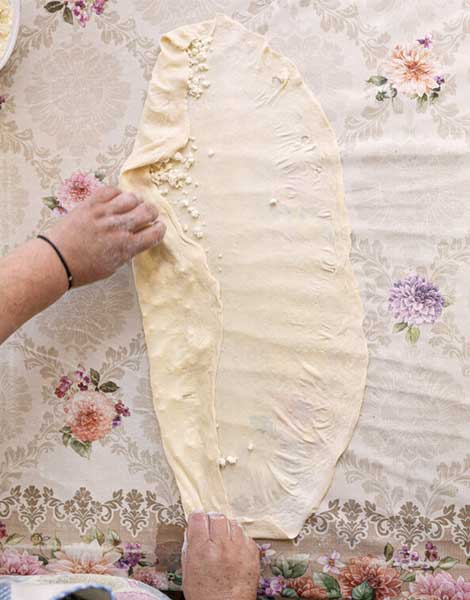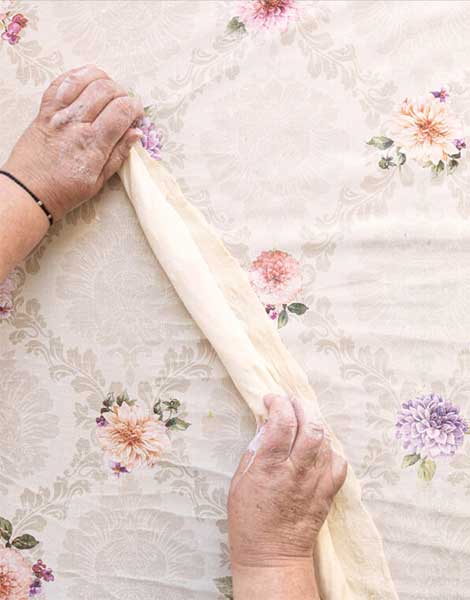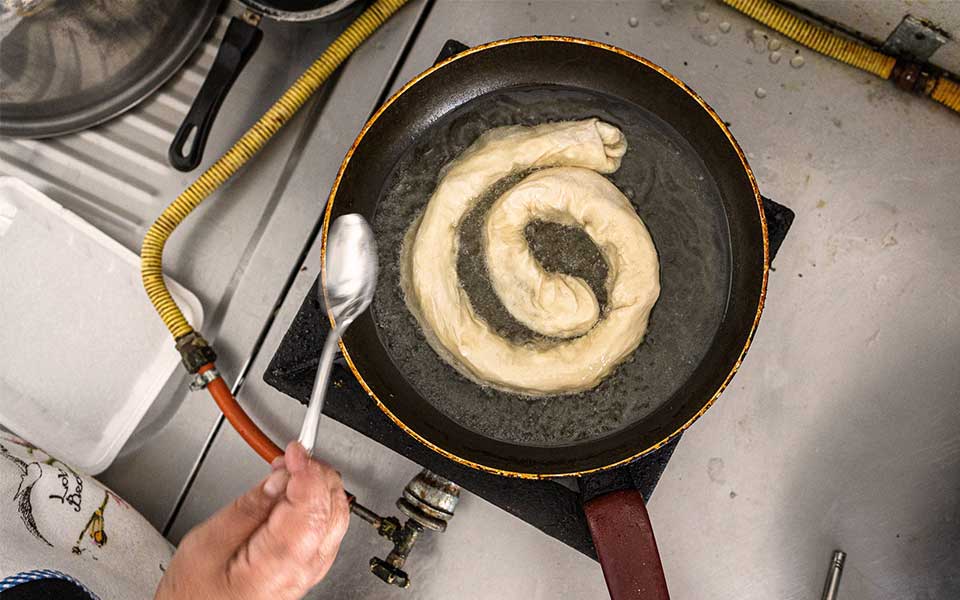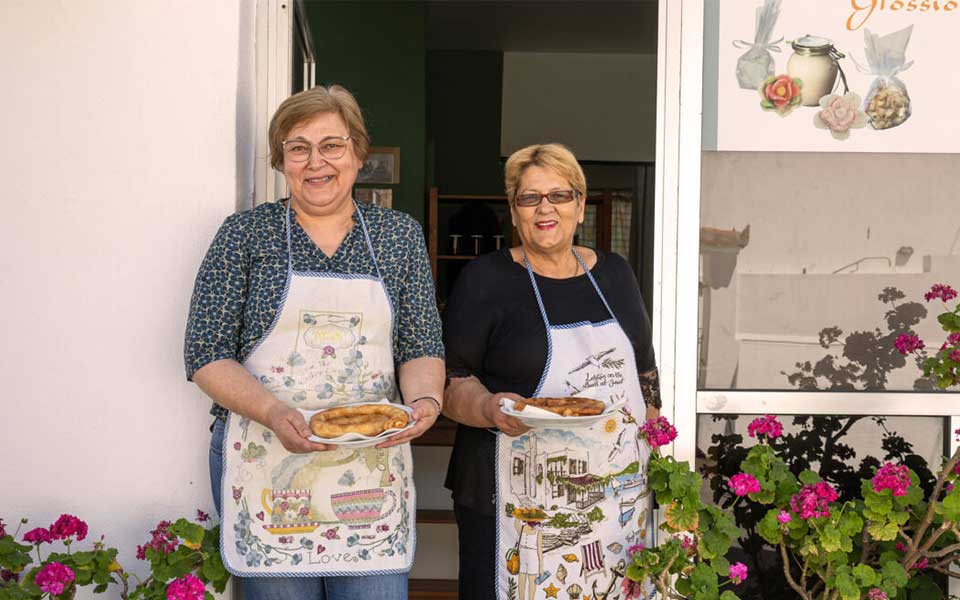In 1999, in the small village of Glossa at the northwestern end of Skopelos, two dozen women got together to form a women’s cooperative. Their basic goal was to promote the island’s gastronomic tradition by offering local products, such as the famous Skopelos cheese pie, the haimalia (fried dough with an almond filling) and a number of other almond sweets. As the years went by, membership dwindled; some of the women opened their own businesses, others passed away, and some simply left. Although greatly reduced in size – at present, there are only four members – the cooperative continues to support the island’s folk traditions; its delicious products are frequently ordered for weddings and baptisms.
Recently, I met with Eleni Papadopoulou, the president of the cooperative, and Eleni Hira at the bakery in Glossa so that I could watch them make an authentic traditional Skopelos cheese pie; there are, unfortunately, many inferior imitations, available both on the island and elsewhere. From the balcony at the bakery, there are views of the village, stretched out across the hillside, as well as the islands of Evia and Skiathos in the distance. The two women greeted us cheerfully as they put on their aprons and began to work. Before meeting us, they had already prepared the dough. “All-purpose or extra fine flour, a little leaven, olive oil, salt and water. This is all we need. We knead the dough and, when it starts to stick to our hands, we leave it aside for about an hour. This is what our grandmothers taught us,” said Papadopoulou.

© Christina Georgiadou

© Christina Georgiadou
The Skopelos cheese pie
Eleni Hira sprinkled a little flour on a tablecloth before taking a small ball of filo dough in her hands – they had already divided the dough into equal-size spheres of approximately 250 grams each – and began to roll it out with the quick, skilled movements of an experienced baker. When the sheet of filo dough, which needs to be thin so that it doesn’t absorb too much oil, was ready, Hira placed a mix of feta and myzithra cheeses on the left side of the sheet. “Local cheese is very salty, so we only use it for special orders,” she said as she gently lifted the filo. After building up the edges a bit so that the filling wouldn’t spill out, she began to fold the filo from left to right, over and over again, until it became one long strip.
She then coiled that strip until it assumed its characteristic circular shape – which is how it got its name “strifti,” which, in colloquial terms, means “twisty.”
At this point, Papadopoulou put a generous amount of oil in a pan which she placed over a low heat. “You need a lot of oil so that it covers the entire pie, but you have to make sure that the oil isn’t too hot, because if it’s too hot, you’ll get a crust on the outside but it won’t be cooked on the inside. The mastery lies in controlling the heat,” she said, as she removed the pie from the pan when it started to turn a little yellow and put it on a sheet of paper towel to help absorb the oil. Cooking time was about 15 minutes. “Would you like a little beer with your pie?” they asked me as they plated up the delectable pastry.

© Christina Georgiadou
The pie was crisp, light and rich in flavor, and wasn’t oily at all. The filling provided just the right amount of cheese. The women told me that they freeze the pies they make and sell them to restaurants, to visitors who want to take them home, and to companies that organize social events. The pies have a freezer life of one year. Apart from these delicious Skopelos cheese pies – the island’s most famous product – Papadopoulou and Hira also prepare a number of other delicacies. The shelves in the bakery are stocked with almond sweets – the island is filled with almond trees – wine and cinnamon-flavored simits (savory bread rings), an assortment of eggplant, fig and sour cherry preserves, and packaged prunes.
The long winter months
Despite the effort required for the kneading and rolling – Hira and Papadopoulou insist on preparing everything by hand – these entrepreneurs seemed full of energy. “In the summer, we’re very busy. Needless to say, we don’t advertise our business. People know us simply by word of mouth,” said Papadopoulou. Hira noted that “The winter months are difficult, and we have a lot less work. The tourists are gone and there are no religious festivals or other events that might need our products. We keep ourselves busy with our families, and we think about the summer.” That certainly made sense to us. Who doesn’t spend long winters thinking about the summer? Still, as long as you have friends and family to share your dreams with, that’s all you really need.
This article was previously published in Greek at gastronomos.gr.












